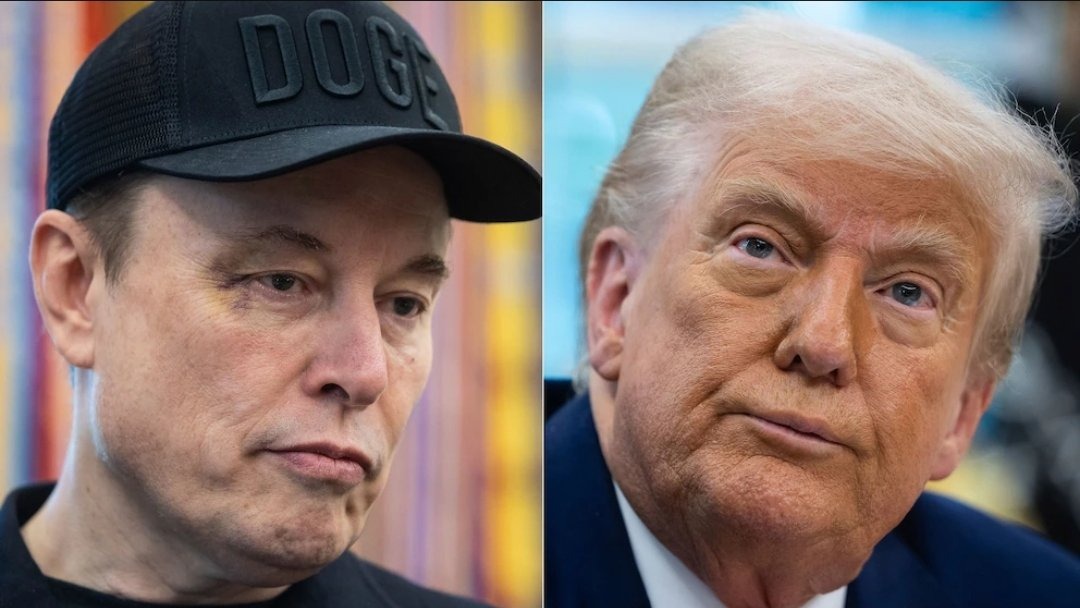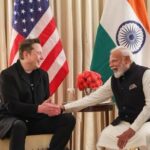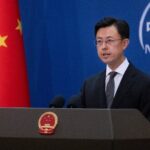I. INTRODUCTION: A TITANIC COLLISION
In what may be one of the most explosive feuds between wealth and power in modern U.S. history, Donald J. Trump, the 45th President and Republican kingmaker, has declared the end of his relationship with tech billionaire Elon Musk. Once perceived as allies—Musk endorsed several Trump-era policies and benefited from massive government contracts—their once-strategic bond has now shattered publicly.
The catalyst? Musk’s vocal opposition to Trump’s recent legislative moves and growing flirtation with third-party politics. Trump, known for his retaliatory instincts, issued a stern warning, stating that Musk would face “serious consequences” for even considering support for Democratic candidates.
What began as political disagreement has evolved into a battle that encapsulates tensions around influence, governance, ego, and the future of American power dynamics.
II. BACKGROUND: FROM ALIGNMENT TO ANTAGONISM
A. The Early Relationship
Trump and Musk’s relationship has always been unconventional. During Trump’s presidency, Musk served on two key White House advisory councils. He later resigned in protest over the U.S. withdrawal from the Paris Climate Agreement, but remained an admired figure among Republicans for his criticism of government regulations and labor unions.
Trump praised Musk for “doing good things for America,” especially with Tesla and SpaceX. Musk, in return, appreciated the Trump administration’s hands-off approach to regulation and the awarding of lucrative federal contracts.
B. The Tipping Point
But the relationship began to fray after Trump returned to power and pushed forward his “One Big Beautiful Bill”—a sweeping economic proposal Musk called a “disgusting abomination” for dramatically increasing federal debt and expanding entitlements.
This dissent, along with Musk’s alleged behind-the-scenes efforts to launch a centrist third party, irked Trump. The final blow came when Musk made cryptic social media references to Trump’s possible links to the Jeffrey Epstein files, though he later retracted the statement.
III. TRUMP’S WARNING: “SERIOUS CONSEQUENCES”
In a recent interview, Trump declared the relationship “over” and went a step further:
“If [Musk] starts supporting Democrats, he’ll face very serious consequences.”
While he didn’t elaborate on what these consequences would be, the subtext was clear: Trump still wields immense influence over the federal contracting process. His administration had awarded SpaceX and Starlink billions in contracts for defense, communications, and NASA missions.
If Trump were to direct a pullback on federal support—or mobilize Congress to investigate Musk’s companies—it could spell financial disaster.
IV. MUSK’S RESPONSE: DEFIANT AND CALCULATED
A. Public Statements
Musk hasn’t held back. In a post to his 180 million followers on X, he wrote:
“No one owns me. I serve the people, not parties. I will support anyone—left or right—who advances truth, science, and innovation.”
He also hinted that the upcoming elections may see his support for “unconventional, rational candidates”—a clear nod to his third-party ambitions.
B. Policy Criticism
Musk’s economic concerns center on ballooning national debt and the weaponization of fiscal policy. He accused Trump of:
- Pandering to populism
- Undermining economic freedom
- Expanding federal control in the private sector
V. ANALYSIS: WHAT’S REALLY AT STAKE?
A. For Trump
- Political control: Trump’s primary concern appears to be ideological loyalty. Musk’s independence threatens GOP cohesion.
- Strategic threats: A Musk-backed third party could siphon votes in key swing states—especially from younger, libertarian-leaning voters.
B. For Musk
- Federal contracts: Losing government deals with NASA, DoD, and others could severely impact SpaceX and Starlink.
- Public perception: His brand—built on innovation and disruption—now risks being overshadowed by political rebellion.
- Investor trust: Tesla’s shares have dropped nearly 15% since the feud began, wiping out over $150 billion in market value.
VI. BUSINESS IMPACT: MARKETS REACT
A. Tesla and SpaceX
Tesla’s stock took an immediate hit following Musk’s attacks on Trump. Investors fear political instability and potential regulatory backlash. SpaceX, which depends heavily on government launches and contracts, faces even more risk.
A withdrawal of support could:
- Delay NASA’s Artemis program
- Jeopardize Starlink’s global internet expansion
- Invite SEC or DOJ scrutiny
B. Broader Tech Industry
Musk’s feud with Trump is sending shockwaves through Silicon Valley. Many CEOs fear that political defiance might now carry tangible business risks.
VII. POLITICAL REACTIONS: A COUNTRY DIVIDED
A. Republican Responses
- Vice President J.D. Vance: “Elon’s emotional… I hope they patch things up.”
- House Freedom Caucus: Demanded congressional reviews of Tesla’s tax breaks and environmental credits.
B. Democratic Opportunism
Some Democrats see an opportunity to court Musk or at least divide the Republican base. Senator Jon Tester (D-MT) tweeted:
“Welcome to the rational side, Elon. Let’s talk about energy independence and innovation.”
VIII. MEDIA AND PUBLIC OPINION
Media outlets have framed the feud as a parable of modern power. Key narratives include:
- Washington Post: “A cautionary tale of billionaire influence in democratic systems.”
- The Guardian: “This is what happens when too much control lies with unelected moguls.”
- Fox News: Mostly supportive of Trump, painting Musk as erratic and egotistical.
Public sentiment, measured via X polls and Reddit forums, is mixed:
- Pro-Musk: “He’s breaking the system for good.”
- Pro-Trump: “No billionaire should challenge the people’s president.”
- Neutral: “This is a soap opera with billion-dollar consequences.”
IX. LEGAL AND REGULATORY POSSIBILITIES
Should Trump escalate, legal tools may be deployed:
- Revocation of subsidies to Tesla for EV production
- Review of environmental violations
- Investigations into labor practices at Tesla and SpaceX factories
- Congressional hearings on foreign influence via Starlink
Each move would require procedural backing, but Trump’s political momentum could sway regulators and agencies.
X. GLOBAL IMPLICATIONS
This feud isn’t just an American affair.
- Europe: Watching closely, especially in light of Tesla’s Berlin Gigafactory and Starlink deals.
- China: May capitalize on Musk’s weakened U.S. position.
- India and Brazil: Emerging markets where Starlink is expanding now question the stability of long-term partnerships.
XI. SCENARIOS: WHAT COULD HAPPEN NEXT?
- Reconciliation
Trump and Musk might broker a truce—motivated by pragmatism and mutual gain. - Escalation
Trump initiates real retaliation. Musk funds or backs independent candidates. Major GOP disruption follows. - Third-Party Launch
Musk formalizes “The America Party,” courting independents and libertarians. Polls shift dramatically. - Musk Goes Left
He begins backing moderate Democrats and climate-centered policies, sparking bipartisan realignment.
XII. EXPERT OPINIONS
“This is political theater with real consequences,” says Harvard political scientist Dr. Elena Caruso.
“We’ve never seen a tech mogul confront a U.S. President like this,” adds media analyst Ryan Blakely.
“Investors hate instability—and this is instability on steroids,” warns JP Morgan strategist Arvind Mehta.
XIII. CONCLUSION: WHEN TITANS COLLIDE
The Trump–Musk split is more than a feud—it’s a collision between state power and private enterprise, between old-school populism and technocratic disruption.
As Trump doubles down on loyalty, and Musk champions independence, both are risking reputations, resources, and perhaps the political landscape of 2026.
This moment may well define the decade’s political realignment.
Will Musk emerge as the face of a new political revolution—or will Trump prove, once again, that no one crosses him without consequence?
Time, politics, and the polls will decide.





